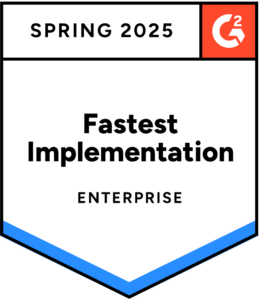What Payday Superannuation Means for Your Finance Function
Blog post
Share
Payday Superannuation: Reform That Will Reshape Financial Operations
Beginning 1 July 2026, the Australian Taxation Office (ATO) will implement a significant reform: superannuation contributions must be remitted to employee funds on payday rather than quarterly.
This initiative—known as Payday Superannuation—aims to enhance employee retirement savings by giving them a more accurate and real-time view of their fund’s performance. However, it also introduces a substantial increase in reconciliation volume, compliance obligations, and operational challenges for finance and payroll teams.
For finance leaders, this change transcends a mere payroll update—it necessitates a comprehensive transformation of systems, processes, and team capacities. Read on to understand why this demands financial transformation, understand what changes this entails, and how proactive organisations are preparing.
Anticipate a 3x to 13x Increase in Reconciliations
For financial institutions, the greater frequency of superannuation contributions could increase your reconciliation loads by as much as 13x what it is today! Depending on the organisation’s payroll frequency, payroll reconciliations will increase.
- Monthly payroll: from 4 to 12 per year
- Fortnightly payroll: from 4 to 26 per year
- Weekly payroll: from 4 to 52 per year
This escalation demands that teams accustomed to quarterly processes adapt to a more frequent reconciliation schedule, maintaining accuracy and timeliness with each pay cycle.
Manual Processes Are Unsustainable with Payday Superannuation
For financial reconciliation, relying on spreadsheets, email threads, and disparate file systems is impractical in a high-frequency compliance environment. Such methods are prone to errors, version control issues, and lack comprehensive audit trails.
A survey by Tipalti revealed that 76% of finance executives agree that manual tasks absorb too much of their teams’ time and effort.
With the advent of Payday Superannuation, the risks associated with manual processes are magnified, leading to potential compliance breaches and operational inefficiencies.
Embracing Automation: A Strategic Necessity for Payday Superannuation
To manage the increased workload coming from payday superannuation contributions effectively, reconciliation automation becomes indispensable. Trintech’s suite offers solutions to:
- Automate low-risk reconciliations: Implement rules-based workflows for automatic account certification.
- Standardise and streamline reconciliation processes: Centralise account ownership, documentation, and approvals.
- Maintain continuous audit readiness: Capture supporting documentation and user actions automatically.
- Accelerate month-end and compliance workflows: Reduce time spent on repetitive tasks, allowing focus on strategic activities.
By minimising reliance on manual methods, your team can scale operations efficiently, regardless of the increased reconciliation frequency.
Consequences of Delaying Automation
Financial institutions in Australia will soon begin feeling the effects of the changes to payday superannuation. The longer they wait to streamline their reconciliations with automation, the greater those effects will be.
Postponing the adoption of an automated reconciliation solution can result in:
- Delays in superannuation processing
- Non-compliance with ATO deadlines
- Increased audit exposure due to inadequate documentation
- Employee burnout from excessive workloads
Implementing automation proactively ensures your organisation remains compliant and operationally efficient as regulatory demands evolve.
Under the forthcoming Payday Superannuation legislation, effective from 1 July 2026, Australian employers will be required to pay their employees’ superannuation contributions at the same time as their salary and wages.
Non-compliance with these new requirements may result in the following penalties:
- Super Guarantee Charge (SGC):
If super contributions are not paid on time, employers must pay the SGC — this includes the unpaid super amounts, interest, and an administration fee.
- Additional Penalties:
Failure to lodge an SGC statement when required can result in a penalty of up to 200% of the SGC amount.
Read more on ATO compliance actions
- Non-Compliance for SMSFs:
Serious contraventions may result in a self-managed super fund (SMSF) being deemed non-complying, with its income taxed at the top marginal rate of 45%.
ATO guidance on SMSF non-compliance
Key Considerations for Finance Leaders
To truly understand the impact payday superannuation will have on your financial institution, begin by assessing your organisation’s preparedness by evaluating:
- Current reconciliation volumes and methods
- Tracking and approval processes for reconciliations
- System capabilities to support increased frequency
- Visibility into close status across all entities
Identifying gaps in these areas can help you guide strategic planning and make the business case for reconciliation software to address the forthcoming challenges.
Proactive Steps for Leading Organisations
Once you understand your current state, consider what a potentially 13x increase in reconciliations related to these contributions will have on your team and processes.
Forward-thinking finance teams are:
- Conducting impact assessments of increased reconciliation volumes
- Identifying bottlenecks in current processes
- Exploring automation opportunities to enhance efficiency
- Consolidating workflows for improved visibility and control
- Aligning teams on audit-ready practices in anticipation of regulatory changes
By initiating these steps now, organisations position themselves to navigate the transition smoothly.
Payday Superannuation Funds Face Similar Challenges
Payday Superannuation funds will also experience increased processing volumes without proportional staffing increases. This places additional responsibility on employers to ensure accurate and timely reconciliations, minimising errors and facilitating efficient issue resolution.
Financial close software aids in achieving precision, reducing exceptions, and maintaining compliance amidst heightened demands.
Payday Superannuation introduces a dual challenge: while superannuation funds must prepare for increased processing volumes, the immediate burden falls on employers to ensure super contributions are reconciled and reported in line with the ATO’s new timing requirements.
For finance teams, this means higher transaction volumes without proportional increases in headcount — increasing the likelihood of reconciliation errors, delays, and compliance risk.
By implementing automation, employers can maintain precision, reduce exceptions, and manage this operational complexity with confidence. Automated reconciliation ensures errors are surfaced and resolved in real time, supporting both compliance and downstream accuracy for superannuation funds.
How Trintech Powers a Confident Financial Close
Trintech has a proven track record of assisting finance teams globally in modernising their financial close, compliance, and reconciliation processes. The suite provides:
- Centralised reconciliation and documentation
- Automated journal entry workflows
- Real-time status tracking for month-end progress
- Scalable processes accommodating growth and regulatory changes
Trintech’s solutions equip your team to manage Payday Superannuation requirements effectively without additional headcount.
Act Now to Avoid Superannuation Pitfalls
Preparing for Payday Superannuation requires immediate attention. By assessing current processes, identifying automation opportunities, and implementing necessary changes, your organisation can ensure compliance and operational efficiency.
Next Step: Consult with Our Experts
Explore how Trintech’s solutions can help your organisation adapt seamlessly to upcoming changes.






